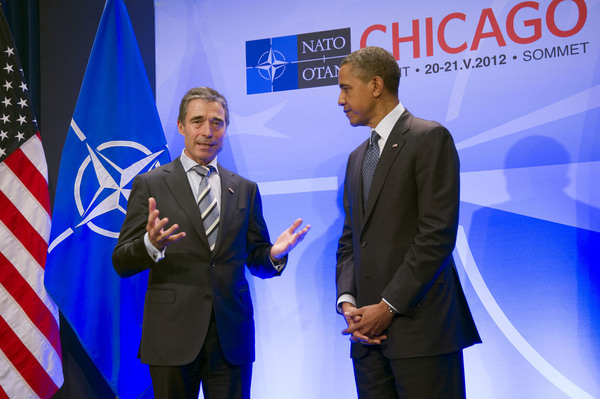
From Bruce Stokes, European Voice: Both Pew and GMF surveys show that Americans and Europeans continue to back NATO, but they want out of Afghanistan, currently a joint US-European military operation. How that disengagement is managed may shape future public support for NATO.
The future European and American role in the Syrian quagmire may also test transatlantic co-operation. Publics on both sides of the Atlantic are clear; they do not want their governments to get involved. More than three in five (63%) Americans say Uncle Sam has no responsibility to do anything in Syria, according to a recent Pew survey. And an earlier GMF poll found 59% of Europeans said, stay out of Syria completely. How European and American governments square their interest in stability in the region with their public’s antipathy for involvement in yet another war could prove a serious challenge. . . .
More than half (56%) of Americans want the Obama administration to take a firm stand against Tehran’s nuclear ambitions, according to a recent Pew survey. And only 28% of Americans who oppose Iran’s nuclear programme are willing to accept a nuclear armed Iran. Significantly more French (48%), Germans (41%) and British (40%) would tolerate Tehran having nuclear weapons. The US president, Barack Obama, has ruled out containment of Iran’s nuclear ambitions. The American public seems to agree; the European public is less convinced.
Complicating all these challenges are the domestic diversions facing both Europe and the US. The eurozone crisis will continue to absorb the time and energies of European leaders, while diverting public attention and complicating almost all governmental initiatives. On the other side of the Atlantic, the American public is increasingly isolationist: 83% say the country should pay less attention to problems overseas and more attention to problems at home. Such sentiment has grown by ten percentage points in the past decade.
Bruce Stokes is director of global economic attitudes at the Pew Research Center. (photo: NATO)
Image: nato%201%2010%2013%20Rasmussen%20Obama.jpg
